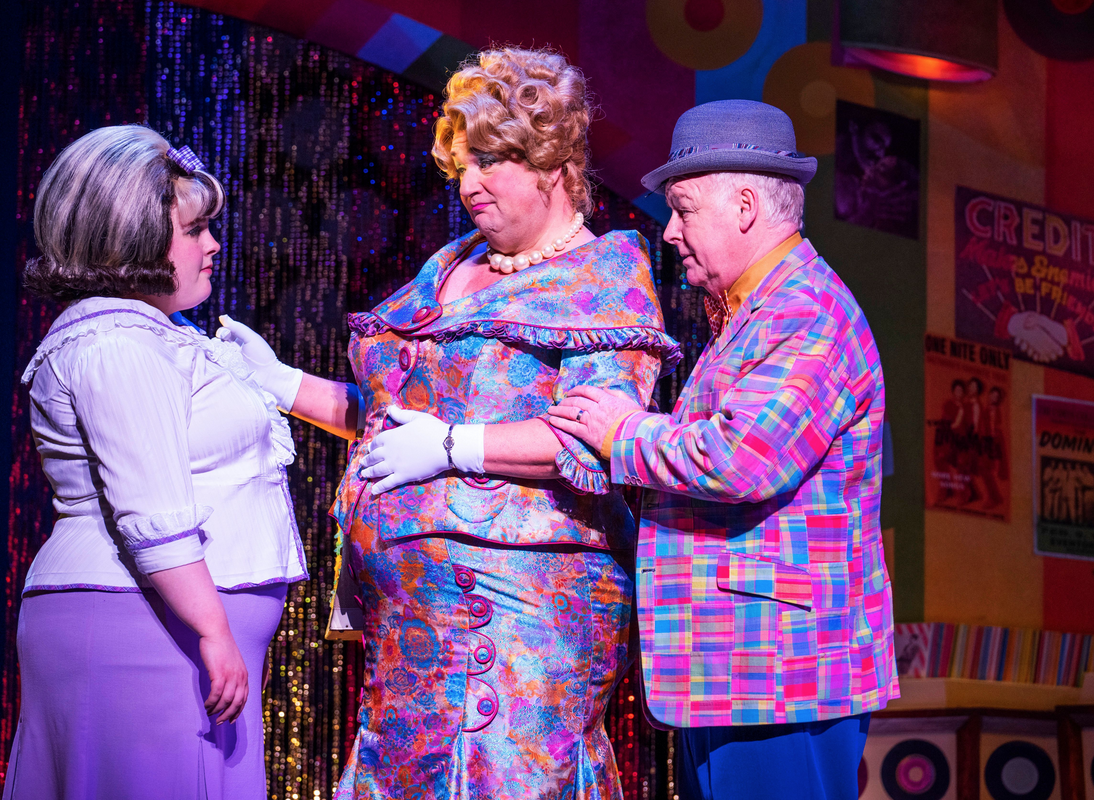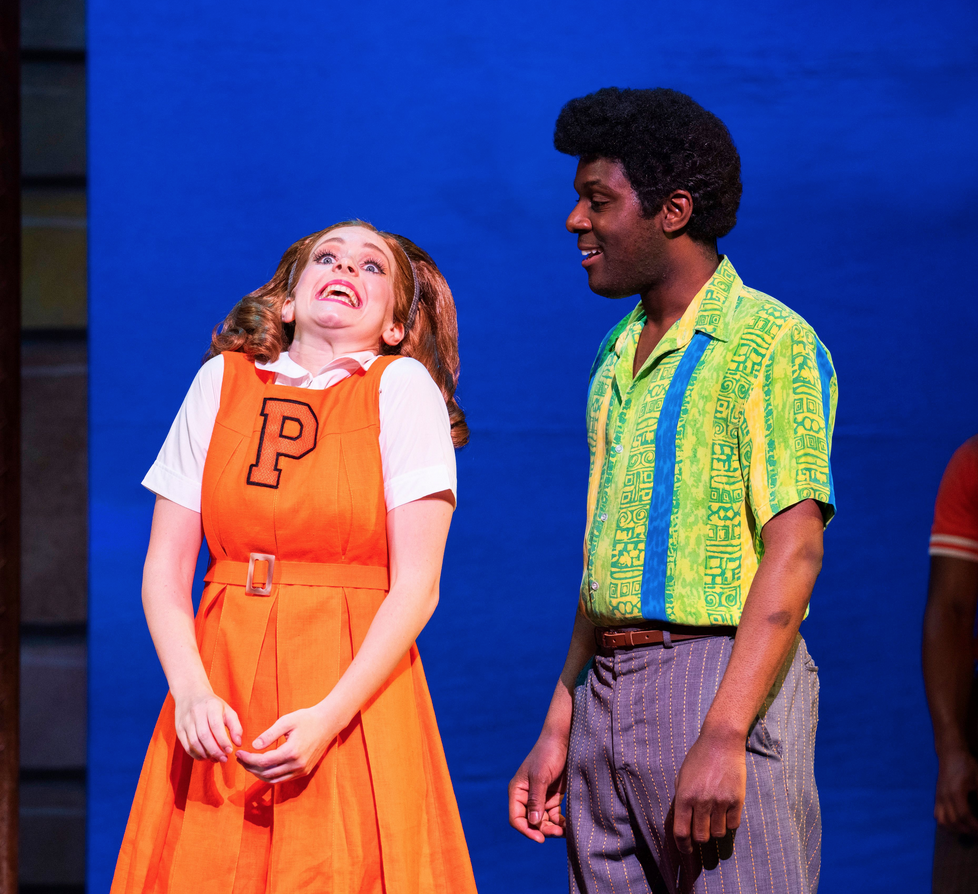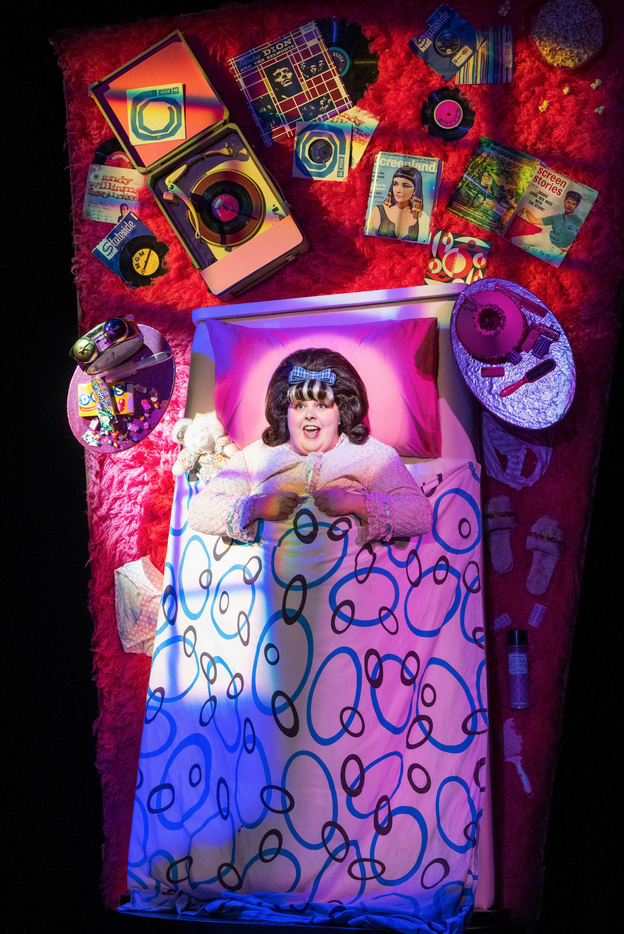London Coliseum, St Martin’s Lane, WC2
Booking to September 29, 2021
Musicals that celebrate the sometimes fine, often tacky art of drag have evolved in the last few decades from La Cage Aux Folles (premiered on Broadway in 1983, a moving portrait of two men in a long-term gay relationship who run a St Tropez drag nightclub being disrupted by the heterosexual son of one of them planning to get married) and Priscilla, Queen of the Desert (‘a cock in a frock on a rock’, as one of the drag queens says of their calling to perform in the Australian outback, premiered in Sydney in 2006, ahead of the West End and then Broadway) to Hairspray, a loving portrait of motherly food addiction and agoraphobia in the plus-sized shape of Edna Turnblad, but whose teenage daughter breaks free of those constricting bonds to single-handedly tackle racism in 60s Baltimore). They’re respectively based on a French play, an Australian film and a John Waters film comedy, the latter of which originally starred the late Divine as Edna Turnblad, with a young Ricki Lake as her daughter Tracy, in 1988.
It was turned into a Broadway musical in 2002, when Harvey Fierstein (the playwright and performer who has made drag one of his calling cards) originated the role of Edna to Tony winning acclaim. He also wrote the autobiographical Torch Song Trilogy (that he also starred in the original production of), the book for La Cage, and a quietly wonderful play Casa Valentina, based on the true story of the mostly heterosexual weekenders staying at a hotel in the Catskills in the 60s that catered for a cross-dressing clientele.
So we know that its heart and soul is in the right place – though nowadays, in the age of cultural appropriation and grievance over who owns and who can tell which stories, nothing is quite so simple. How will the PC brigade feel about the role being appropriated by Michael Ball, a middle-aged man who has lived in a committed relationship with a woman for the last 30 years, and who has a daughter of her own? (Ball is also godparent to the grandchild of his partner)
Ball is actually no stranger to the role, having won his first Olivier for originating the role in the transfer of the original Broadway production to the West End’s Shaftesbury Theatre in 2007. Now, nearly a decade and a half later, he’s expanded into the role (in every sense); there’s heartbreak and heartache in their tender avoidance of the world outside the home they’ve created for husband Wilbur (Les Dennis, a masterclass in understated devotion) and daughter Tracy (a fierce and fabulous Lizzie Bea; the family trio are pictured below, by Tristram Kenton).

And if the show doesn’t quite give Ball the chance to fully exercise his vocal chops in the way that Sweeney Todd so ferociously did in the West End in 2012, he’s wholeheartedly (and wholesomely) wonderful, with a tender vulnerability and real warmth, not least in the portrait of the character’s marriage to Les Dennis’s affecting and affectionate Wilbur. There’s also a knowingness, of course, in Mark O’Donnell and Thomas Meehan’s script, that he gives full value to: “Don’t tell me Liberace has found the girl of his dreams!”, he says with a twinkle in his eye when told to turn the television on for a major discovery.
Meanwhile, young stud Link Larkin, the TV star whom Tracy becomes obsessed with, remarks, “Those girls were all over me. I don’t know how Rock Hudson stands it.” As played by fresh-faced newcomer Johnny Amies, he could be the West End’s latest youthful sensation since the discovery two years ago of Jac Yarrow.
But my favourite line in the show remains the moment when Tracy tells Seaweed, the young black performer on the TV dance show, “I wish every day was Negro Day!” when performers of colour could join the line-up; and he replies, “At our house, it is!”
But the house we’re in tonight is the Coliseum, one of London’s very largest theatres, more usually used as the home of English National Opera, and not a friendly space for playing comedy. Laughs don’t always land; not least in a socially distanced auditorium, where only 1000 seats are filled instead of the usual 2,400 or so.
And if production inevitably feels a little scenically threadbare at times on that large stage, the cast populate it with infectious high spirits that makes this ultimately a joyful return for the West End with its first big re-staging of this now familiar title, which has had several regional outings in the years since its West End debut. There are numerous scene-stealing turns, but a mid-show standing ovation is earned by Marisha Wallace as the magnificently-voiced Motormouth Maybelle, while Mari McGinlay and Ashley Samuels (pictured below, by Tristram Kenton) take the comic honours as Penny Pingleton and Seaweed respectively.

After the last 15 months in which theatre has been mostly a wasteland, it is wonderful to be back in one of the grandest theatres of all, and watching one of the most delightful of shows.

